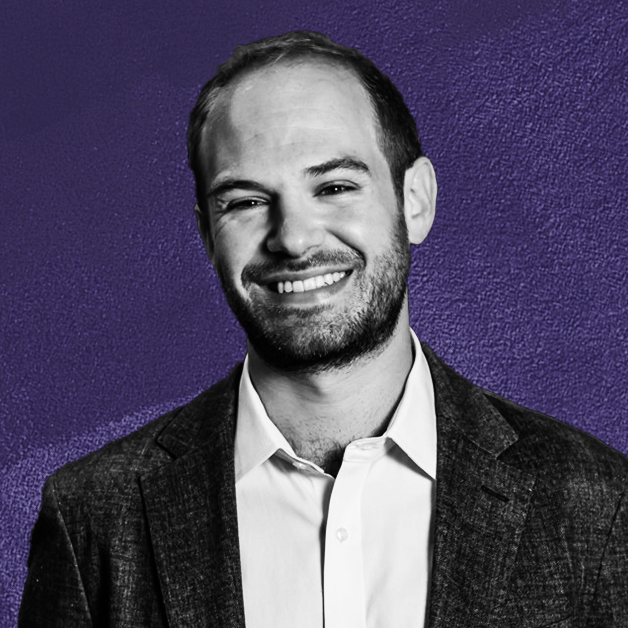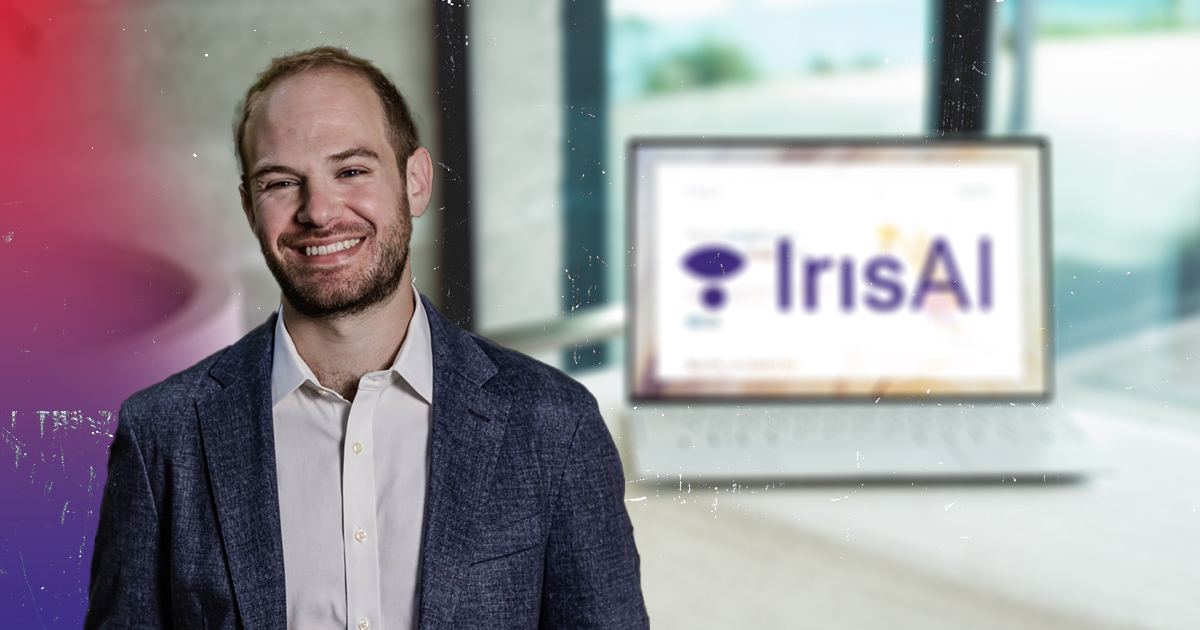
Kogod School of Business
For everyone from students and researchers to entrepreneurs and regulators, grappling with the rapid rise of artificial intelligence (AI) products this year has fueled an endless array of questions.
But it’s exactly in AI technology that Kogod ‘15 alum Ben Hills, saw an opportunity.
“What’s neat about AI is that it has perfect memory, it’s available 24/7, and it doesn’t complain when it gets asked the same thing over and over again,” Hills explained. “Those are all the biggest pain points we hear from employees; these are the things that cause them the most frustration.”
Hills himself experienced frustration during an eight-year run as an executive at Full Measure Education, an online communications platform created by one of Blackboard’s founding members. (The company recently merged with StudentBridge).
During his time there, and in talking with staff at other companies, Hills learned of the immense amount of time workers spend answering questions—equal parts critical and tedious—related to security, data, and compliance.
“I thought this would be a really good use case for AI,” Hills said.
His solution: Hey Iris AI, which he and co-founder Sagee Moyal, SPA ‘17, launched in June.
The online business-to-business platform uses AI to automate and streamline some of the most repetitive and time-consuming aspects of operating software in fields with stringent data and privacy requirements, such as health, finance, government, and education technology.
“With our platform, when you get something like, ‘answer these 100 questions about our security posture,’ rather than putting them in a Google Doc and tagging your co-workers and such, our platform automatically drafts response to those questions,” Hills explained.
Hey Iris’ approach may be a potential answer to the larger question of how AI could be incorporated into our economy—a new frontier Google executives likened to fire and electricity, as pointed out during an on-campus summit with the tech giant’s executives last winter.
A recent Gallup survey found nearly three-quarters of chief human resource officers anticipate AI replacing jobs at their company within the next three years.
Indeed, Hills said, the recent, rapid growth of AI was entirely responsible for Hey Iris’ existence, with AI being “at the core” of its product—a result of it becoming a more widely usable technology and dramatic reductions in its cost.
Hey Iris’ tailored models learn solely from a particular client’s information ecosystem rather than more broadly incorporating information from the internet.
“This platform couldn’t have existed more than a year ago,” Hills said.
What used to require a room of servers can now be done on an individual computer, allowing us to give each client a contextualized AI engine specific to their company.”

Ben Hills
CEO, IRIS AI
Still, building a startup is challenging, no matter how robust the technology behind the product.
It’s a lesson Hills knows all too well. As a high schooler, Hills was the founder of a custom apparel startup, and he later gained “phenomenal” experience as a Kogod undergraduate student as part of one of the first cohorts to participate in the AU Center for Innovation’s Entrepreneurship Incubator program.
Housed in a state-of-the-art facility in the Don Myers Technology and Innovation Building, the program helps students and recent alums build and scale for-profit and non-profit startups from the ground up, offering participants expert advice, mentorship, and, sometimes, grant funding.
While at AU, Hills sought to challenge Craigslist with his startup, Sinbad, by providing students a “safer place to buy and sell goods.”
Ultimately, though, he encountered a challenge faced by many entrepreneurs: building a team to carry out the founders’ mission. In the case of Sinbad, finding engineers to make the product proved to be the largest proverbial landmine.
But Hills’ experience in the incubator ultimately proved to be an invaluable trial run as he now navigates the early days of Hey Iris, which is currently about halfway to its fundraising goal.
Things that I learned in the Incubator—the types of questions investors ask, what it’s like to demo your product, what it’s like only to have three seconds to capture someone’s attention—those are the exact experiences I have today."

Ben Hills
CEO, IRIS AI
It’s a similar story for many incubator alums, who have gone on to build groundbreaking companies following their first go-around as a founder. (That is, of course, to say nothing of the $20 million-plus in aggregate revenue generated by active, graduated incubator startups).
“So much of the entrepreneurial journey is really about applying the scientific method to business,” noted Kogod Department of Management professor Bill Bellows, one of Hills’ mentors during his time at AU.
“We develop an idea, test it, learn from our tests, make adjustments based on our findings, and test again until we get it right,” Bellows said. “The key is for a founder to find people with complementary skills and build a culture that fosters mutual respect, collaboration, transparency, trust and a preference for action over whiteboarding.”
Indeed, having the opportunity to trial and error such ideas and skills while studying as an undergraduate is deeply intertwined with Hills’ success today. He says it’s why he encourages current students to take advantage of programs like the incubator.
“Right now, post-college, as an adult, if I have an idea for a problem I want to solve, it takes money to get to a solution. I can’t just walk into a lounge and find the kid on my floor who knows how to code,” Hills said. “You don’t have an opportunity, other than when you’re in college, to have such a low-risk, high-value experience.”
